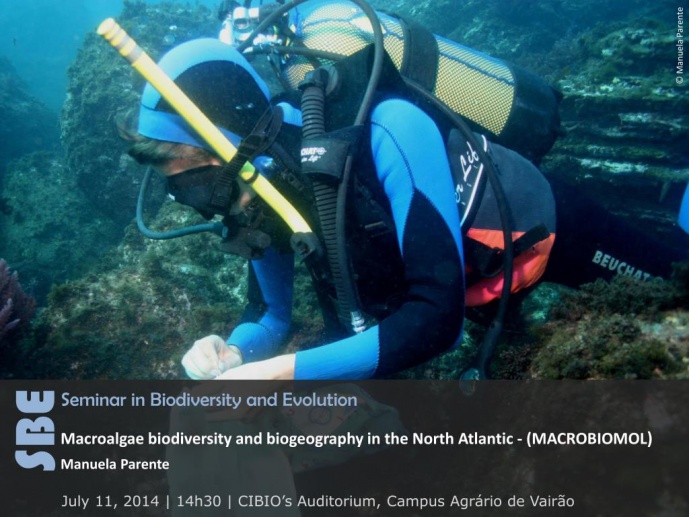MACROALGAE BIODIVERSITY AND BIOGEOGRAPHY IN THE NORTH ATLANTIC - (MACROBIOMOL)


MACROBIOMOL aims to implement a DNA Barcoding approach in the investigation of the biodiversity and evolution of macroalgae occurring in the Azores in relation to other floras from strategic biogeographic regions across the North Atlantic and Western Mediterranean. A complex algal flora characterizes the Azores, being at the northern and southern distributional limits of many Atlantic species. Its central location in the Atlantic Ocean, influenced by North Atlantic gyre currents, further contributes to the Islands’ peculiar diversity of macroalgae. By analysing species diversity and biogeography using the same mitochondrial marker across such a significant geographic region, it will allow expressing and testing hypotheses on the origin of the Azorean flora and their place and importance within seaweed flora of North Atlantic. The first results shed light on seaweeds diversity and will be presented.
Manuela Parente graduated in Biology from the University of the Azores with a final thesis in taxonomy, biology and ecology of red algae. She completed the MPhill and PhD degrees both in Philosophy from the University of Portsmouth in taxonomy, life histories and molecular phylogeny of brown algae. She was postdoc for 5 years and currently she is in the second year of a development of scientific carrier grant at CIBIO studying the seaweed flora of Portugal emphasizing the Azores and using a DNA barcode approach. Her research interests focus on the biodiversity and evolution of macroalgae combining traditional and molecular taxonomic techniques. She’s also interested in the phylogeography of selected macroalgae across target oceanographic regions, to help understanding biogeographic species and populations’ patterns, and aim to infer phylogenetic hypotheses for certain groups using a multigene approach.
[Group Leader: António M. Frias Martins, Biodiversity and Islands - Insularity and Connectivity in an Atlantic Context]
Image credits: Manuela Parente